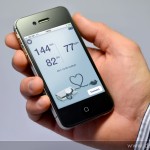 Last year a study was released calling into question the value of health apps. It suggested that the sector was something of a wild west, with apps of varying quality and minimal health benefits fighting for attention squarely alongside more worthy ones.
Last year a study was released calling into question the value of health apps. It suggested that the sector was something of a wild west, with apps of varying quality and minimal health benefits fighting for attention squarely alongside more worthy ones.
The issue was brought back into the spotlight again recently with a fresh study exploring the claims of the popular health app Instant Blood Pressure.
Enough to make your blood boil
The study found that the app, which claimed to estimate blood pressure, was utterly awful at the task. Indeed, some 77% of people who actually had high blood pressure were given the all clear by the app.
“We need to educate folks who have this app not to use it, and to be aware that there could potentially be apps out there that aren’t safe in the app store,” the authors say.
The Instant Blood Pressure app has been removed from the iTunes store for a while now, but it had previously been in the top 50 best-selling apps on the market, with nearly 150,000 downloads.
Its failure has not deterred a plethora of other, similar apps from also clogging up the marketplace.
Whilst the app did market itself as for entertainment rather than medical purposes, the reviews left for the app left little doubt that many did use it as a supposedly accurate medical device.
Poor performance
When researchers tested the app, they found that was poor at both ends of the spectrum, under-estimating high blood pressures and over-estimating low blood pressures.
So what can be done to improve matters? Whilst the FDA do purport to regulate health apps, they only do so for those operating in areas of serious risk, and given the huge marketplace for health apps, it’s perhaps unrealistic to expect them to check each and every one.
A recent paper suggests that one method could be the “micro-randomised trial”.
These are where participants are randomly assigned a possible treatment that they can take several times each day. As such, each person must be randomized hundreds, or even thousands of times during the course of the study.
“These trials will provide evidence regarding in which real-time settings wearable devices should provide treatments to help you and me, and in which settings these treatments will only aggravate us,” the author says.
Suffice to say, even such an approach adds a layer of complexity to matters that may inhibit their effectiveness. It does however underline the severe challenge facing the market as it attempts to retain credibility.
Good. More needs to be done to allow consumers to navigate what is a wild west at the moment.
It's certainly progress, but there's a whole lot more work that needs to be done to make sense of what good and bad looks like in the app marketplace.